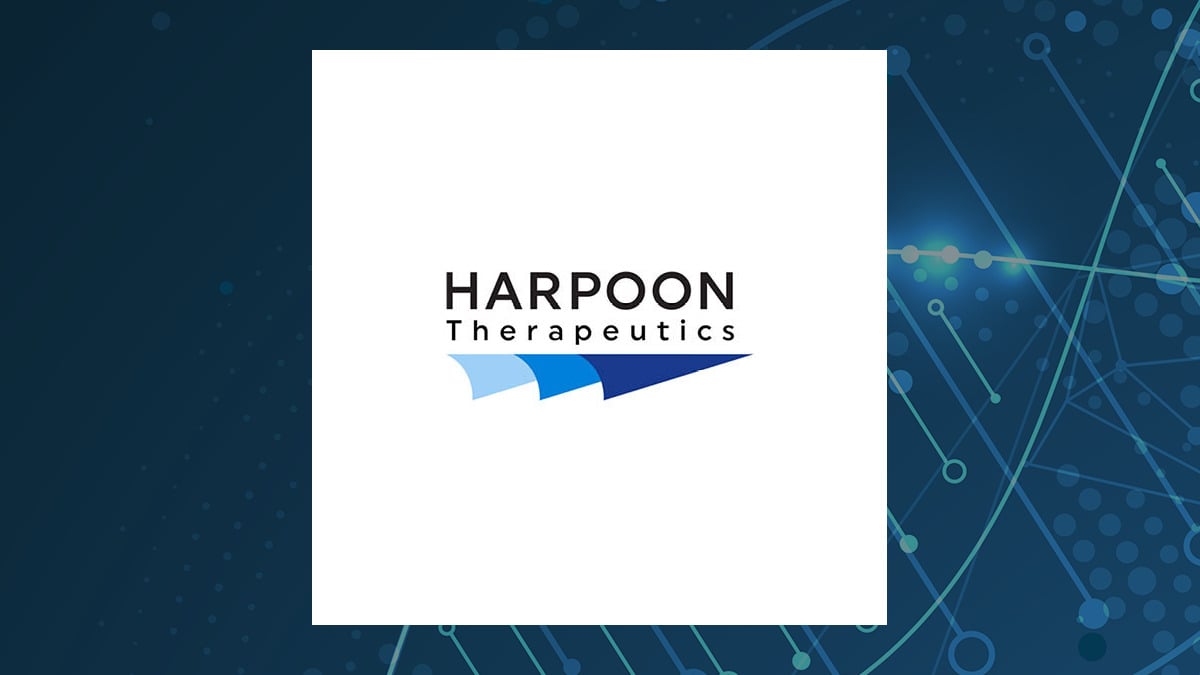Harpoon Therapeutics (NASDAQ:HARP – Get Free Report) and LianBio (NASDAQ:LIAN – Get Free Report) are both small-cap medical companies, but which is the superior investment? We will contrast the two companies based on the strength of their risk, valuation, profitability, analyst recommendations, dividends, earnings and institutional ownership.
Volatility & Risk
Harpoon Therapeutics has a beta of 2.11, meaning that its stock price is 111% more volatile than the S&P 500. Comparatively, LianBio has a beta of 0.23, meaning that its stock price is 77% less volatile than the S&P 500.
Profitability
This table compares Harpoon Therapeutics and LianBio’s net margins, return on equity and return on assets.
| Net Margins | Return on Equity | Return on Assets | |
| Harpoon Therapeutics | -81.68% | -893.55% | -45.98% |
| LianBio | N/A | -33.17% | -30.19% |
Earnings and Valuation
| Gross Revenue | Price/Sales Ratio | Net Income | Earnings Per Share | Price/Earnings Ratio | |
| Harpoon Therapeutics | $37.34 million | 10.43 | -$67.73 million | ($8.76) | -2.63 |
| LianBio | N/A | N/A | -$110.29 million | ($0.81) | -0.38 |
Harpoon Therapeutics has higher revenue and earnings than LianBio. Harpoon Therapeutics is trading at a lower price-to-earnings ratio than LianBio, indicating that it is currently the more affordable of the two stocks.
Analyst Recommendations
This is a summary of current ratings and price targets for Harpoon Therapeutics and LianBio, as reported by MarketBeat.
| Sell Ratings | Hold Ratings | Buy Ratings | Strong Buy Ratings | Rating Score | |
| Harpoon Therapeutics | 0 | 4 | 2 | 0 | 2.33 |
| LianBio | 1 | 1 | 1 | 0 | 2.00 |
Harpoon Therapeutics presently has a consensus price target of $27.25, indicating a potential upside of 18.43%. LianBio has a consensus price target of $5.33, indicating a potential upside of 1,642.07%. Given LianBio’s higher probable upside, analysts clearly believe LianBio is more favorable than Harpoon Therapeutics.
Insider and Institutional Ownership
74.0% of Harpoon Therapeutics shares are owned by institutional investors. Comparatively, 74.8% of LianBio shares are owned by institutional investors. 17.0% of Harpoon Therapeutics shares are owned by insiders. Comparatively, 7.6% of LianBio shares are owned by insiders. Strong institutional ownership is an indication that endowments, large money managers and hedge funds believe a company is poised for long-term growth.
Summary
LianBio beats Harpoon Therapeutics on 7 of the 13 factors compared between the two stocks.
About Harpoon Therapeutics
 Harpoon Therapeutics, Inc., a clinical-stage immunotherapy company, engages in the development of a novel class of T cell engagers that harness the power of the body's immune system to treat patients suffering from cancer and other diseases in the United States. The company develops tri-specific T cell activating construct (TriTAC) product candidate, including HPN328, which is in Phase I/II clinical trials for the treatment of small cell lung cancer and other Delta-like canonical Notch ligand 3-expressing tumors; and HPN217 that is in Phase I clinical trials for the treatment of multiple myeloma. Its preclinical stage product is HPN601 for the treatment of multiple solid tumor indications. It has a discovery collaboration and license agreement with AbbVie Biotechnology Ltd. to develop and commercialize products that incorporate its proprietary TriTAC platform technology together with soluble T cell receptors. The company was incorporated in 2015 and is headquartered in South San Francisco, California. As of March 11, 2024, Harpoon Therapeutics, Inc. operates as a subsidiary of Merck Sharp & Dohme LLC.
Harpoon Therapeutics, Inc., a clinical-stage immunotherapy company, engages in the development of a novel class of T cell engagers that harness the power of the body's immune system to treat patients suffering from cancer and other diseases in the United States. The company develops tri-specific T cell activating construct (TriTAC) product candidate, including HPN328, which is in Phase I/II clinical trials for the treatment of small cell lung cancer and other Delta-like canonical Notch ligand 3-expressing tumors; and HPN217 that is in Phase I clinical trials for the treatment of multiple myeloma. Its preclinical stage product is HPN601 for the treatment of multiple solid tumor indications. It has a discovery collaboration and license agreement with AbbVie Biotechnology Ltd. to develop and commercialize products that incorporate its proprietary TriTAC platform technology together with soluble T cell receptors. The company was incorporated in 2015 and is headquartered in South San Francisco, California. As of March 11, 2024, Harpoon Therapeutics, Inc. operates as a subsidiary of Merck Sharp & Dohme LLC.
About LianBio
 LianBio, a biopharmaceutical company, engages in developing and commercializing medicines for cardiovascular, oncology, opthalmology, and inflammatory diseases in China and other Asian countries. The company develops mavacamten for the treatment of obstructive and non-obstructive hypertrophic cardiomyopathy, and heart failure with preserved ejection fraction; TP-03 for the treatment of Demodex blepharitis and meibomian gland disease; NBTXR3 for the treatment of head and neck squamous cell carcinoma, and solid tumor; Infigratinib for the treatment of second-line and first-line cholangiocarcinoma, and gastric cancers; BBP-398 for solid tumors; Omilancor and NX-13 for ulcerative colitis and Crohn's disease; LYR-210 for chronic rhinosinusitis; and Sisunatovir for respiratory syncytical virus. It has a partnership with Tarsus Pharmaceuticals, Inc. to develop and commercialize TP-03 for the treatment of Demodex blepharitis; and Nanobiotix S.A. to develop and commercialize NBTXR3, a radioenhancer designed to be injected directly into a malignant tumor prior to standard radiotherapy. The company was incorporated in 2019 and is headquartered in Princeton, New Jersey.
LianBio, a biopharmaceutical company, engages in developing and commercializing medicines for cardiovascular, oncology, opthalmology, and inflammatory diseases in China and other Asian countries. The company develops mavacamten for the treatment of obstructive and non-obstructive hypertrophic cardiomyopathy, and heart failure with preserved ejection fraction; TP-03 for the treatment of Demodex blepharitis and meibomian gland disease; NBTXR3 for the treatment of head and neck squamous cell carcinoma, and solid tumor; Infigratinib for the treatment of second-line and first-line cholangiocarcinoma, and gastric cancers; BBP-398 for solid tumors; Omilancor and NX-13 for ulcerative colitis and Crohn's disease; LYR-210 for chronic rhinosinusitis; and Sisunatovir for respiratory syncytical virus. It has a partnership with Tarsus Pharmaceuticals, Inc. to develop and commercialize TP-03 for the treatment of Demodex blepharitis; and Nanobiotix S.A. to develop and commercialize NBTXR3, a radioenhancer designed to be injected directly into a malignant tumor prior to standard radiotherapy. The company was incorporated in 2019 and is headquartered in Princeton, New Jersey.
Receive News & Ratings for Harpoon Therapeutics Daily - Enter your email address below to receive a concise daily summary of the latest news and analysts' ratings for Harpoon Therapeutics and related companies with MarketBeat.com's FREE daily email newsletter.
